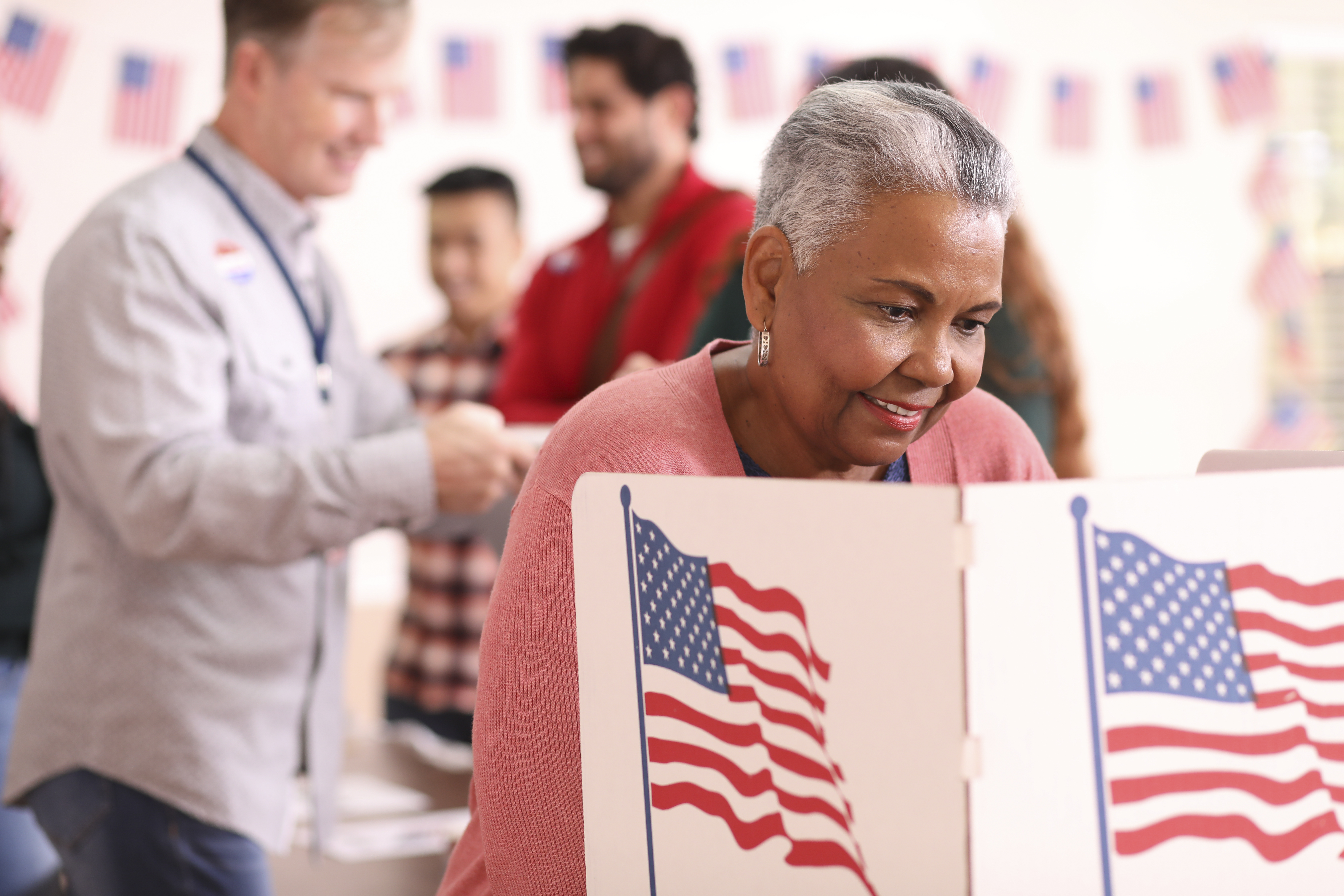AARP Hearing Center

For John Vajda, 85, high property taxes will be a major issue in determining his vote in New Jersey’s upcoming primary election.
Vajda and his wife, Barbara, have lived in the same single-family, three-bedroom house in Verona, in Essex County, since 1987. Their property taxes have soared since then. In just the last 15 years, their bill has climbed about 40 percent, to more than $12,500 a year.
New Jersey has the highest effective property tax rate in the country. A tax relief program for older residents, called Senior Freeze, reduces Vajda’s bill by about $3,300, and a second break knocks off a bit more, bringing it down to about $7,400.
“To me, it means a major difference,” says Vajda, a retired pharmaceutical executive. “Hopefully, we can keep Senior Freeze in place. ... It may prevent a whole bunch of people from having to give up their homes.”
Older voters like Vajda will have a big say in the outcome of the Tuesday, June 10 contest. An AARP analysis of New Jersey elections going back to 2020 found that voters 50 and older turned out in larger numbers than any other age group. In off-year elections like this one, the analysis showed that more than 60 percent of the electorate statewide was over 50, with some counties exceeding 70 percent.
“If you want to get elected in New Jersey, you really have to be paying attention to what 50-plus voters are looking for,” says Crystal McDonald, senior associate state director for advocacy at AARP New Jersey.
She says these are the top issues AARP hears about from its members:
- Expanding relief for family caregivers: More than one million New Jersey residents are caregivers for an adult family member or friend, according to an analysis of 2021 data by AARP’s Public Policy Institute. Those caregivers provided 940 million hours in care, with a value of $17.6 billion in unpaid labor.
The New Jersey Family Leave Insurance program currently provides wage replacement for new parents and family caregivers who take time off to care for a loved one, but they only have job protections if they are employed at businesses with 30 or more workers. AARP supports a proposal to expand that protection to employees of businesses with five or more workers.
AARP also supports legislation to give caregivers tending to an older family member a refundable state income tax credit of up to $675, to help defray the out-of-pocket costs that often come with that role - Improving financial transparency in nursing homes: Approximately 75 percent of New Jersey nursing homes are for-profit facilities, which sometimes have complex ownership structures that allow money to be siphoned away from resident care, McDonald says.
AARP backs legislation that would require nursing home owners to publish certified financial statements that include payments to related parties, which proponents say would help give families a clear overview of how a facility’s revenue is spent.
“It’s very crucial” to have that kind of transparency, says Voorhees resident Wanda Flowers Peacock, 76, an AARP volunteer whose adult son rehabbed in a nursing home after a kidney transplant. “[The] bulk of that money should be going toward skilled care for the people who are there.” - Full funding for property tax relief: The average property tax bill in New Jersey is about $10,000. In an already high-cost state, this puts an added burden on older adults who want to age in their homes and communities.
A 2022 AARP survey of voters age 50-plus showed that 38 percent of residents have difficulty paying their property taxes each month. Among all homeowning respondents, 60 percent said they were paying at least $9,000 annually in property taxes.
McDonald says that a new tax relief program called Stay NJ, along with two existing initiatives — ANCHOR (Affordable New Jersey Communities for Homeowners and Renters) and Senior Freeze — can cut property taxes by as much as half for older residents. But continued funding will rely on support from the next governor and Legislature.
Without an incumbent running for governor, this year’s field of candidates is larger than usual — as many as six Democrats and five Republicans are slated to be on the ballot. All 80 seats in the state’s General Assembly are also up for grabs.
That makes researching candidates’ positions even more critical, says Micah Rasmussen, director of the Rebovich Institute for New Jersey Politics at Rider University.
“We’re also in a period where a lot of politicians are advocating for significant cutbacks in government,” says Rasmussen. “It’s important for senior voters to understand where candidates stand, which of them would keep these programs and which ones would discontinue them.”
Adds AARP’s McDonald: “At the end of the day, people want to be able to retire in New Jersey. We want to live, grow up [and] grow old right here with our families.”
For information on how to vote in the June primary, visit aarp.org/njvotes or the state’s voter information portal at nj.gov/state/elections/voter-registration.shtml.
Drew Jubera spent 21 years as a reporter at The Atlanta Journal-Constitution. He has written for the Bulletin since 2009.
- Gubernatorial Candidates on Their Plans for Older Residents
- AARP New Jersey-Siena College Poll
- How to Vote in New Jersey's Elections































































